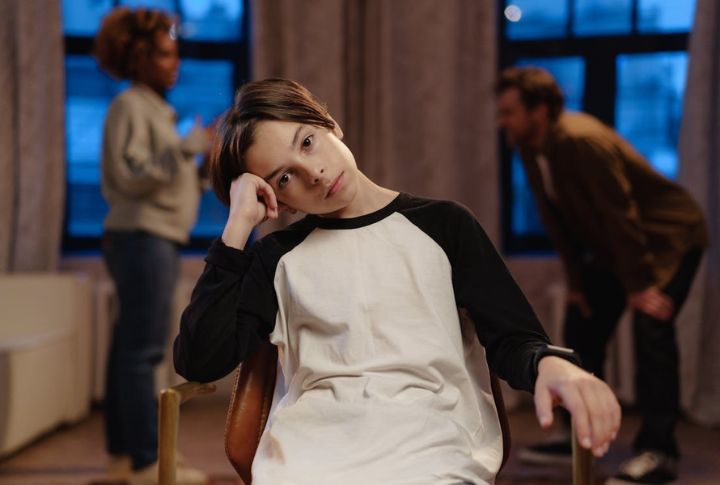
A family member repeatedly poking fun at another member’s appearance under the cover of humor, while everyone else chuckles, is a familiar scene that says more than we realize.
In the moment, it feels like ordinary teasing, but when it happens again and again, the message sticks. Such habits shape the way family members see themselves and each other. And that’s the thing—so many of the patterns we call “normal” in families are actually unhealthy.
Here, we’ll walk through five of the most common ones, the kind that quietly leave a mark long after the laughter dies down.
Expectation Kids To Solve Adult Problems Before Adulthood
This cultural pattern often shows up when the oldest child is pushed into acting like a second parent. They cook, clean, and handle domestic duties while the real parent provides financially. That financial support is then used as leverage: “I work to feed you and your siblings—this is your way of helping.” Pushing financial, emotional, or relational burdens onto young shoulders trades playful wonder for early worry. The result? Childhood shrinks.
Shaming Emotions As Weakness
Some families view the expression of emotions as a flaw, labeling tears or even bursts of joy as weaknesses. One of the most damaging myths is the idea that male family members shouldn’t show feelings. Over time, bottling up laughter, pain, or sadness strips away healthy emotional language.
Laughing Off Cruel Comments As “Jokes”
Remember the scenario we described in the intro? That is the perfect example of hurtful comments hiding behind laughter. It’s easy to dismiss barbs when they’re couched in humor—but words can bruise under the cover of a joke. When these dynamics are consistent, it teaches resilience through silence, not safety in speech. It legit sizes up cruelty as “just family banter.”
Belittling Instead Of Guiding
Criticism without compassion erodes self-worth. Instead of offering support, families sometimes respond with laughter or mockery, leaving the person feeling small.
In those moments, mistakes stop being opportunities to learn and start feeling like proof of inadequacy. Over time, the voice of self-doubt grows louder than the parent who should be building confidence. As one old saying goes, “Words cut deeper than swords.”
Prioritizing Appearances Over True Well-Being
This pattern shows up when caregivers pressure someone to dress, speak, and behave according to their expectations rather than their individuality. Appearance ultimately matters more than lived experience.
The cost is authenticity—families learn to put on a show instead of sharing what’s real. Smiles replace stories, and projection replaces processing. Eventually, those masks slip, often leaving pain and confusion behind.
Closing Insight
These five “ordinary” habits are harmful because they shape how you love and how you learn to be loved. Even though you can’t change history, you can acknowledge it, and that awareness is the first step to healing. Hold space for your own needs. Then, offer the kindness that was missing because it ripples outward, resetting the tone for generations to come.

